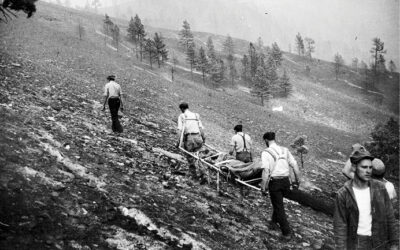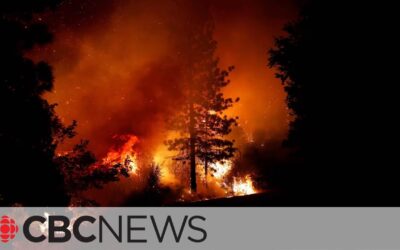Focus on Arizona wildfire last summer

LOS ALAMOS, N.M. (AP) — Sunlight-absorbing particles in wildfire smoke may contribute less to warming temperatures than previously thought, according to the findings of a Los Alamos National Laboratory-led research team.
The researchers in a paper released in a scientific journal last week reported that as the plume mixes with clean air, its absorbing power and warming effects are reduced.
The focus was on smoke from a wildfire that charred nearly 194 square miles (502 square kilometers) in Arizona last summer. The blaze burned for more than a month before being contained.
Powerful instruments including an aerosol mass spectrometer were used to measure in real time the chemical, physical and optical properties of ambient aerosol and trace gas concentrations in four large plumes. The team observed intact and more-disperse plumes that aged more than half a day while traveling 300 miles (483 kilometers) across New Mexico,
The composition of the plumes and the aerosol properties within the plumes were more varied than expected, and more oxidation appeared to lower the smoke’s sunlight absorbing potential and lessen its climatic impact.
“Wildfire plumes are complex and change quickly,” said Allison Aiken, an atmospheric chemist at Los Alamos and co-author of the study. “Particles at the plume’s center have different shapes and chemistries than at its edge.”
She said this is important to understand in order to model climate impacts and human health effects at different locations and distances from the source.
This research was supported in part by the U.S. Energy Department and the National Science Foundation.
All contents © copyright 2020 The Associated Press. All rights reserved.




